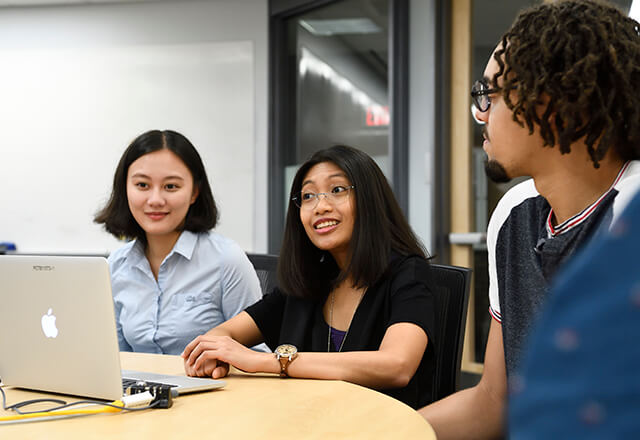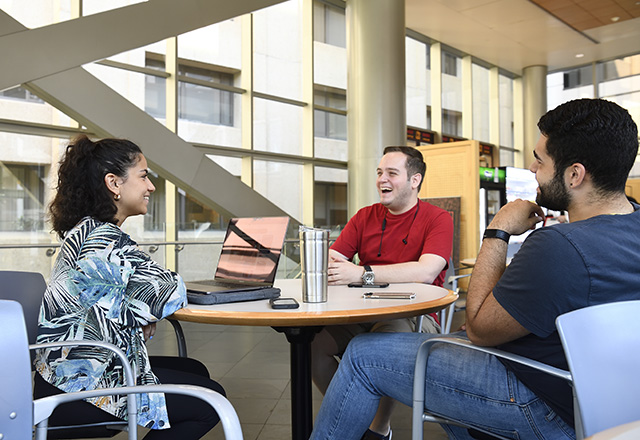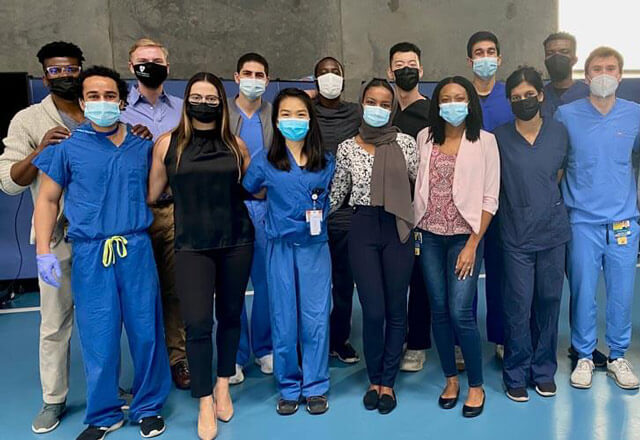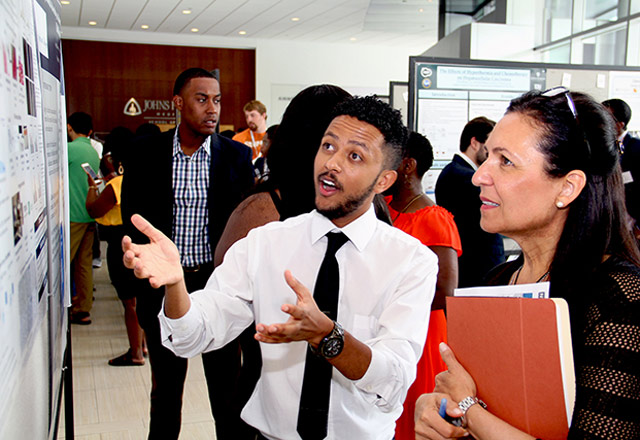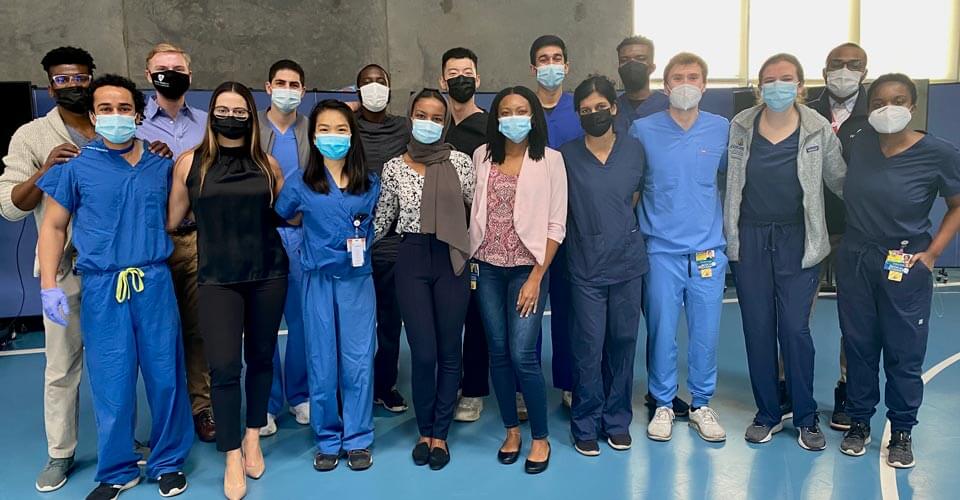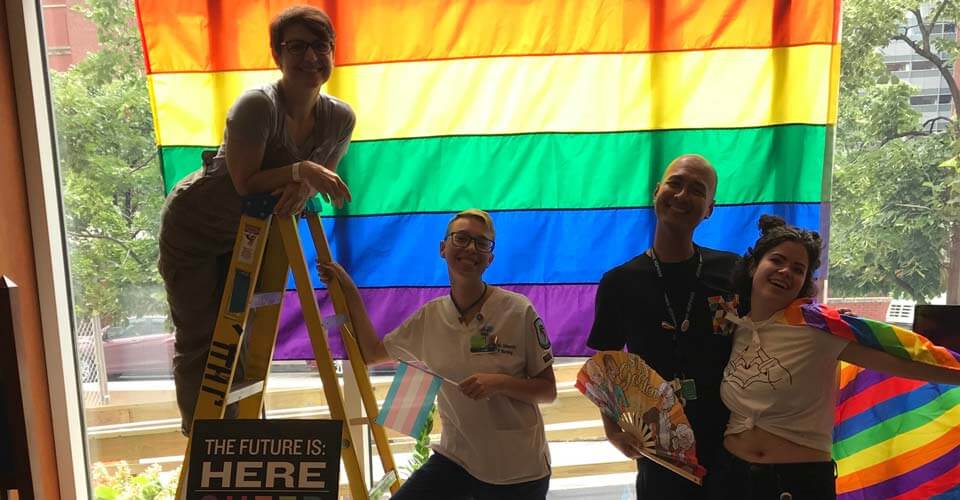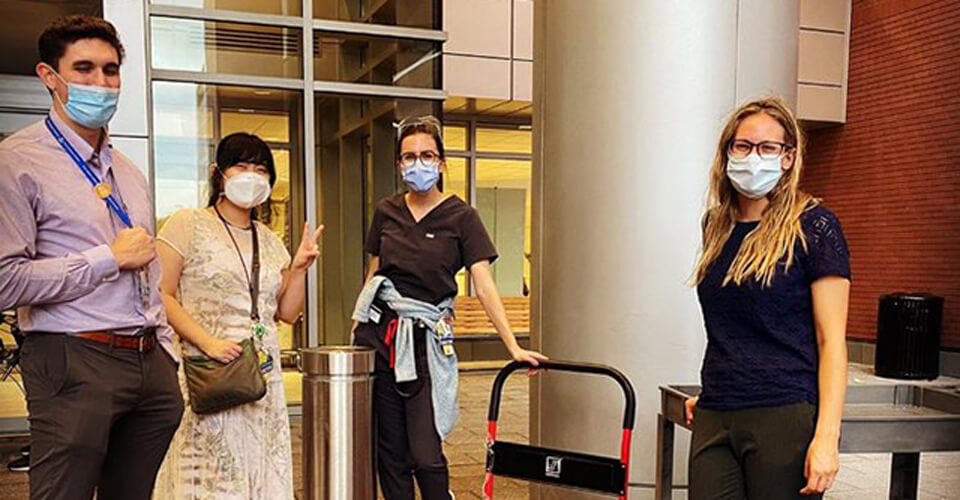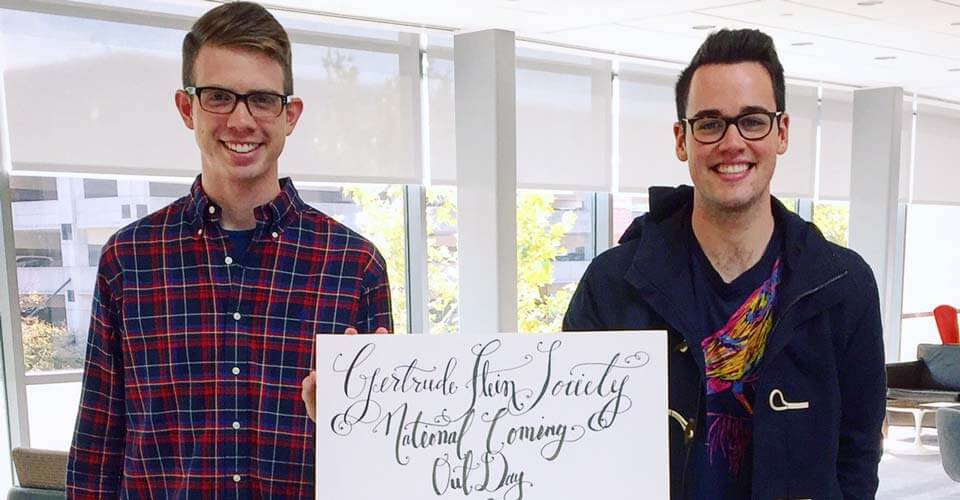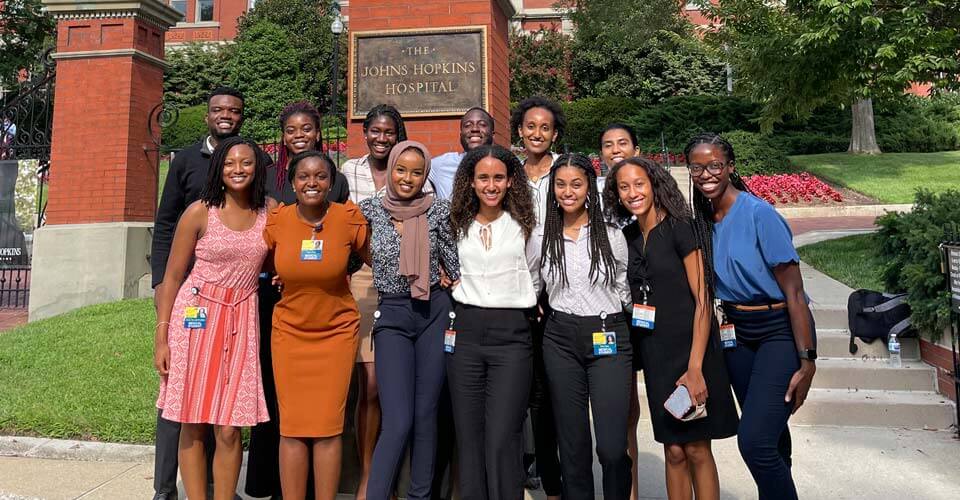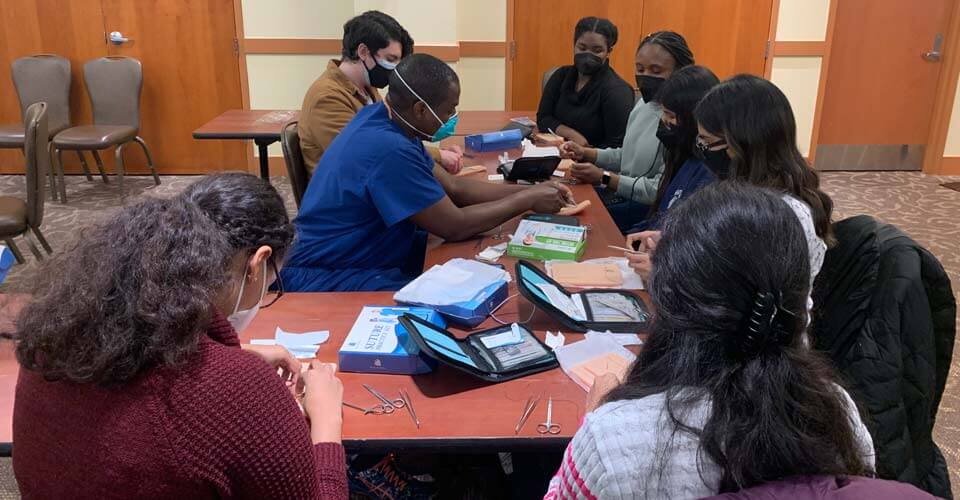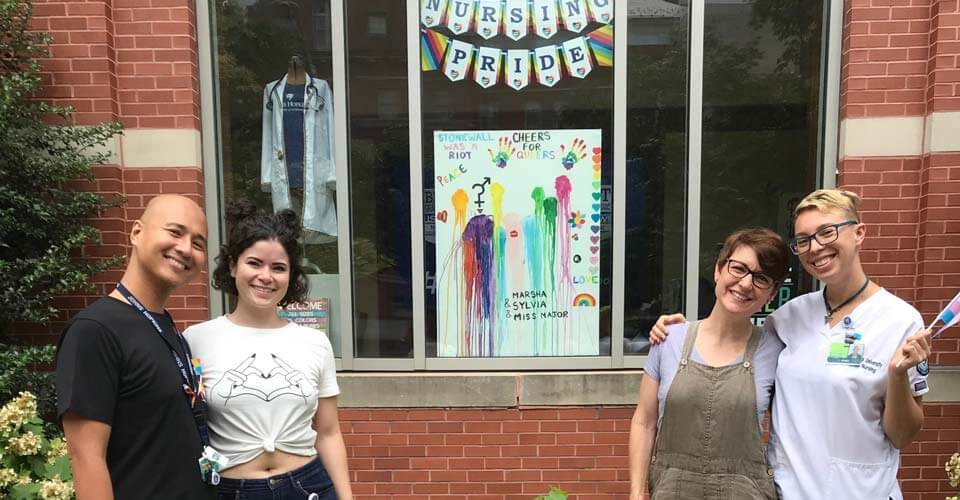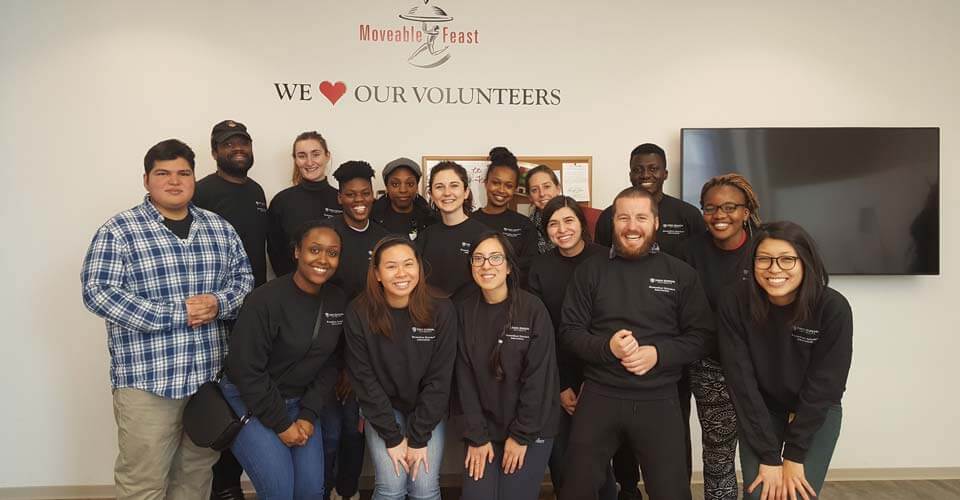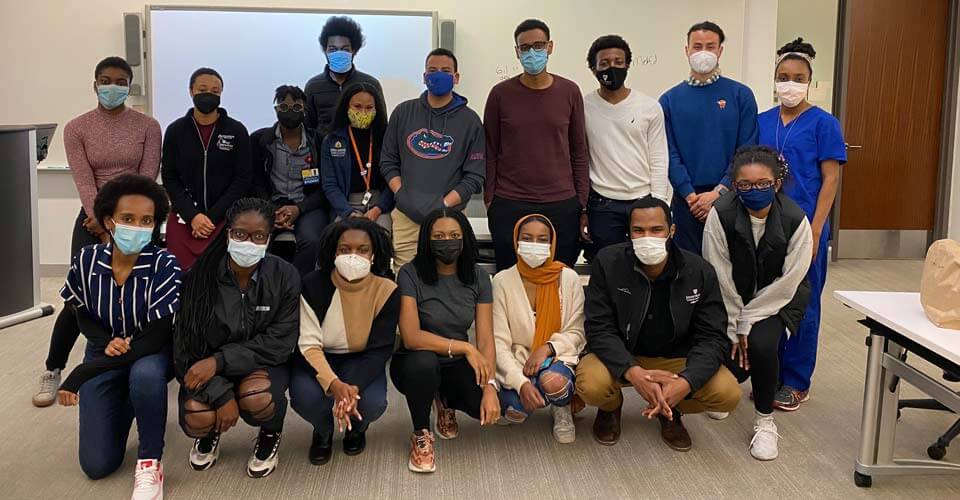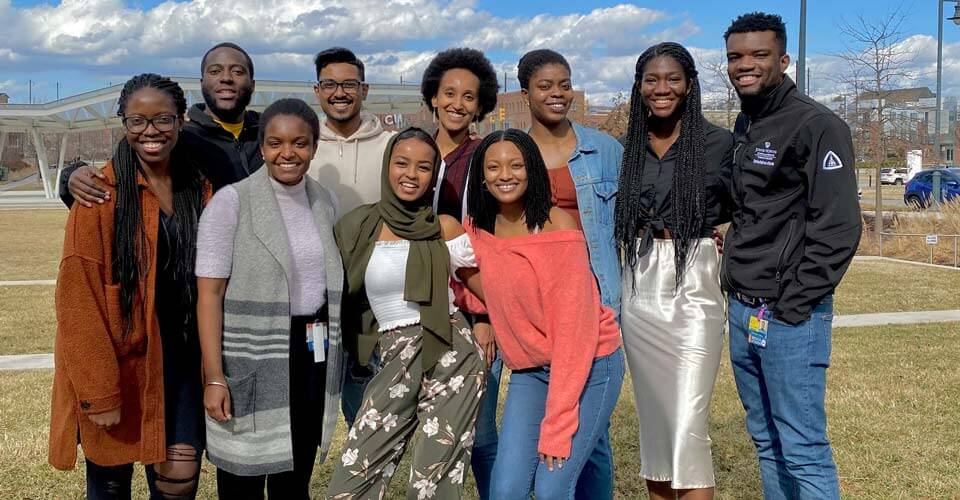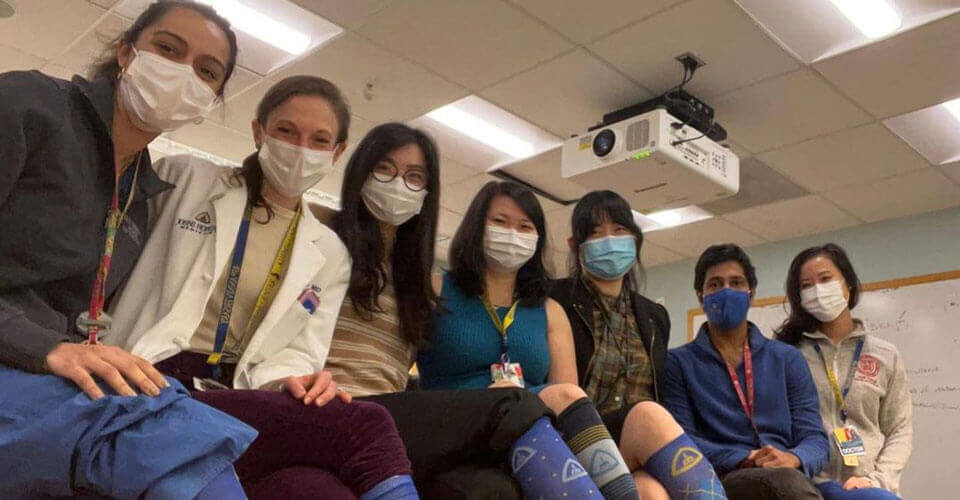The Johns Hopkins University School of Medicine considers diversity as one of the core components of medical education. We are committed to supporting learners via one-on-one mentoring, recruitment and retention of a diverse student body, and sponsoring activities to increase diversity.
Diversity Resources
-
-
- Department of Medicine Diversity Council
- Otolaryngology Clerkship for Minority Medical Students
- Johns Hopkins Department of Dermatology Diversity Clerkship Award
- Orthopaedic Surgery Diversity Scholarship
- Wilmer Eye Institute Diversity Scholars Program
- Pediatric Diversity Council
- Office of International Services
- Gyn/Ob Diversity Subinternship Program
- Visiting Elective Program for Students Underrepresented in Pediatrics
- Plastic & Reconstructive Surgery Underrepresented in Medicine Visiting Elective
- Visiting Elective Program for Students Underrepresented in Pediatrics
-
-
Student Affinity Groups
These student-run groups encompass all of our learners from medical students to residents and fellows, graduate students, and postdoctoral candidates.
Meet Nate Irvin | Assistant Dean for Medical Student DEI
Nathan Irvin, MD came to Johns Hopkins to grow and strengthen the existing diversity, equity and inclusion infrastructure across the school of medicine and the Johns Hopkins Health System. Creating a safe, respectful and supportive learning environment requires intentionality to understand and support the nuanced needs of students, particularly those from backgrounds that are underrepresented in medicine and science (UIMS).
Meet the Assistant Dean for Medical Student DEI
Q&A with Nathan Irvin, assistant dean for medical student diversity, equity and inclusion (DEI).
-
My job is to help recruit, support, and advocate for the needs of our diverse student body. A large part of my work is to ensure a welcoming and inclusive culture that fosters a sense of belonging for all medical students. This role was created to grow and strengthen the existing diversity, equity and inclusion infrastructure across the school of medicine and the Johns Hopkins Health System. Creating a safe, respectful and supportive learning environment requires intentionality to understand and support the nuanced needs of students, particularly those from backgrounds that are underrepresented in medicine and science (UIMS). Recognizing that everyone has room for improvement in addressing our own biases, I am also charged with developing opportunities for growth for our students and faculty members. Ultimately, this work will help bring in perspectives, values and lenses that will prepare students to better care for patients as future physicians.
-
I hope to help attract and support the best and brightest medical students from diverse backgrounds, in order to continue the rich culture and experience of students here. I want to create opportunities for students to learn from one another and grow in their ability to reflect, and to question and interrupt their own biases. I also want to help maintain a supportive culture in which all students have a voice and feel their voice matters, and that we use these voices to continuously move us forward.
-
The Johns Hopkins Office of Diversity, Inclusion and Health Equity serves a pivotal role in supporting the needs and improving experiences of students who are underrepresented in medicine, including a rich array of opportunities for students to learn, network and grow. Additionally, the school of medicine supports affinity groups, which focus on the unique needs of students’ identities. Many departments within the school of medicine host visiting student clerkship opportunities to encourage students from underrepresented backgrounds to experience the community we have here at Johns Hopkins. An important part of my role is to ensure students have opportunities to take advantage of these supports.
-
I am part of a team working on Johns Hopkins’ REPAIR (Realizing Educational Partnerships to Abolish Institutional Racism) project, which is an anti-racist approach to fostering health equity. In addition, I co-direct the Generation Tomorrow: Summer Health Disparity Scholars program, which provides underrepresented students in medicine with opportunities to spend a summer focused on learning how to address health disparities while gaining mentorship and clinical experiences. I also co-direct the Health Humanities at Johns Hopkins Emergency Medicine initiative, which seeks to equip learners with the tools to understand and address the human experiences of health and illness, and to see their patients as individuals in the context of larger social perspectives.
-
As members of the health care team, students have opportunities each time they see patients to listen, advocate, and commit to providing the highest level of care. Additionally, there are issues of health equity in every field of medicine, so I encourage students, no matter which field they choose, to ask themselves what equity-related questions they may address that can help their patients. There are also formal programs here at Johns Hopkins, like SOURCE, which is a community engagement and service learning center that connects students with service opportunities at local organizations. Additionally, members of many of our affinity groups have used their positions of power as medical students to advocate for social justice-related issues.
-
Johns Hopkins provides students the opportunity to care for patients of all backgrounds and social strata, with world class resources and clinical teams. From the first days of medical school, the importance of health equity — and the facilitators and barriers to achieving it — are emphasized and interwoven throughout both pre-clinical and clinical years. Students are taught and mentored by faculty members and researchers who will equip them with the skills to deliver the highest level of evidence-based care, and the confidence to ask and tackle the most challenging research questions facing communities that are underrepresented in medicine. Furthermore, the high level of medical and social complexity of Johns Hopkins’ patients provides an unparalleled experience to learn how to partner with patients to overcome obstacles they face.
-
My interests in diversity, equity and inclusion were inspired by my own experiences as a Black male from an underserved community. I was the first of my family to go to college and, subsequently, medical school. So much of what I have been able to achieve has been because of supportive people in my life who looked like me, could identify with my experiences, and provided me with critical advice and counsel to overcome the hurdles I encountered. These individuals cultivated within me a need to pay it forward, and that is what I have done throughout my life. This new and exciting role is a continuation of this journey.
Diversity and Inclusion Points of Contact for the School of Medicine
The Johns Hopkins Medicine Office of Diversity, Inclusion, and Health Equity is structured to offer systematic oversight and focused leadership on addressing the specific opportunities for improving our diversity and inclusion efforts within the school of medicine.
We are committed to addressing your concerns and want to share the appropriate points of contacts in our office for diversity and inclusion matters.
-
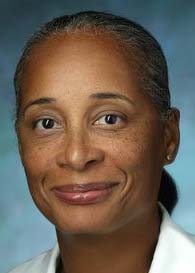 Senior Associate Dean for Diversity and Inclusion
Senior Associate Dean for Diversity and Inclusion
To discuss matters in regards to:- Serves as the co-chair of the SOM Faculty Diversity Council
- Partner with the Associate Dean for Graduate Medical Education to co-lead efforts to support recruitment of housestaff who are from groups underrepresented in medicine (UIM);
- Partner with Assistant Dean for Medical Student Affairs and Director of Medical Student Diversity to determine strategies to enhance UIM medical student recruitment and retention.
- Partner with the Assistant Dean for Graduate Biomedical Education and Graduate Student Diversity to determine strategies to enhance UIS graduate student recruitment and retention
- Partner with the Associate Dean for Postdoctoral Affairs to support recruitment and retention of research postdoctoral fellows from UIS groups
-
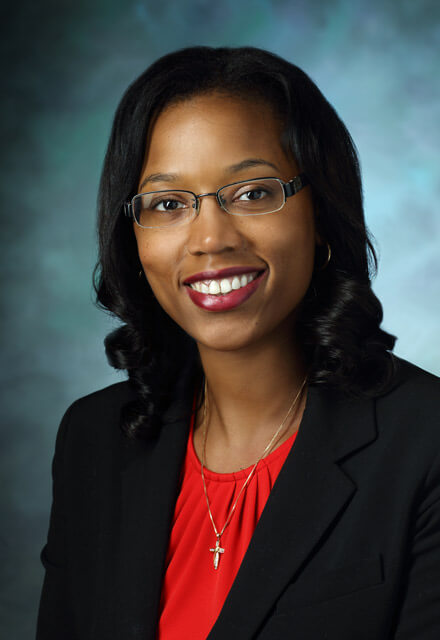
Assistant Dean for Diversity, Equity and Inclusion for Graduate Medical Education and Postdoctoral Affairs
To discuss matters in regard to:
- Programming to build inclusivity across graduate medical education and post-doctoral training environments.
- Programming to support the recruitment and retention of housestaff who are from multicultural, international, and underrepresented groups in medicine.
- Programming to support the recruitment and retention of postdoctoral research fellows from multicultural, international, and underrepresented groups in science and medicine.
- Serves as Ex-Officio and Faculty Sponsor for the House Staff Diversity and Inclusion Council by providing support, feedback and resources to the council.
-
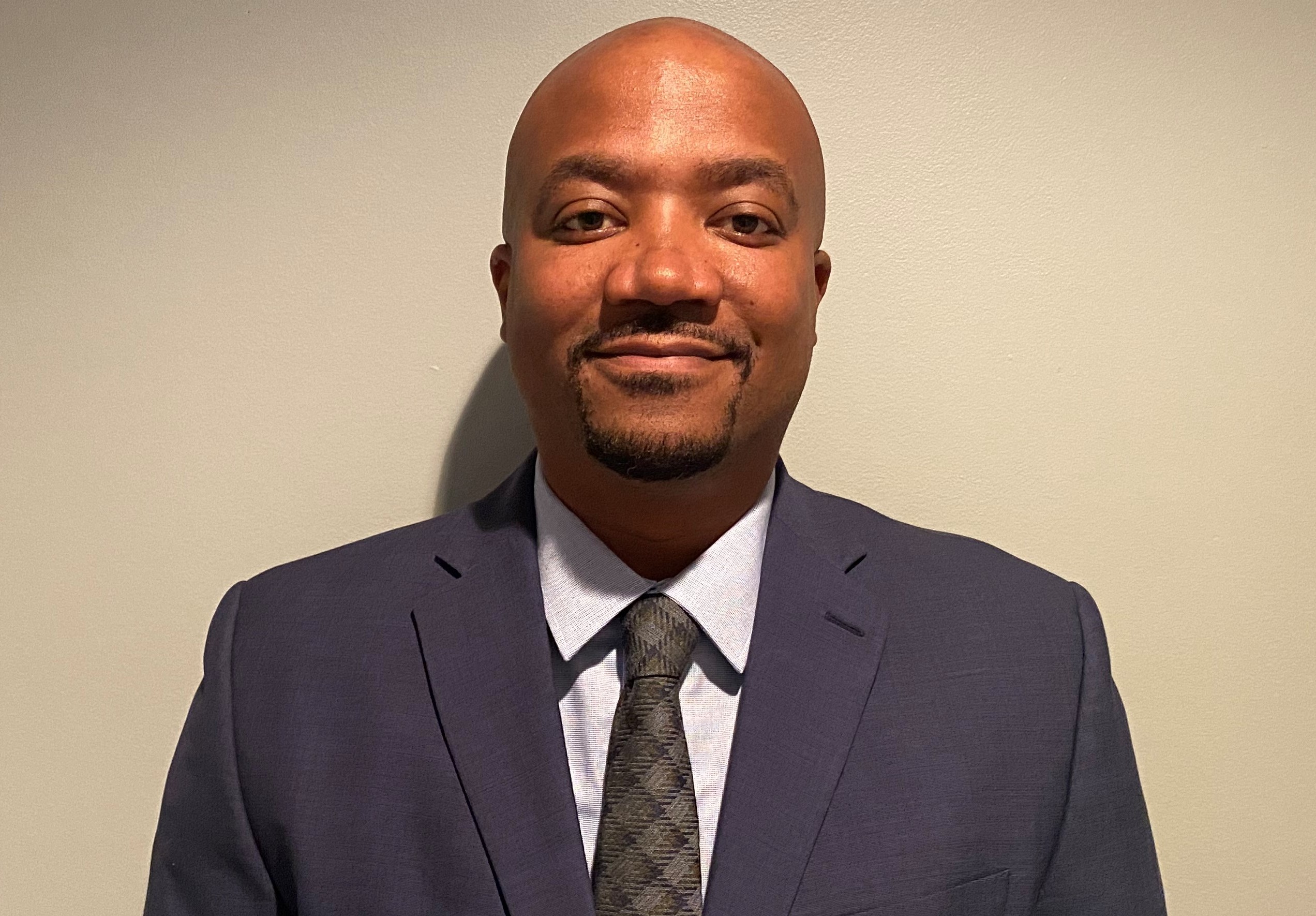
Assistant Dean for Medical Student Diversity
To discuss matters in regards to:- Medical Student Affairs and Diversity Efforts
- Serves as the Ex-Officio and Faculty Sponsor for the Student Diversity Council by providing support, feedback, and resources to the council.
-
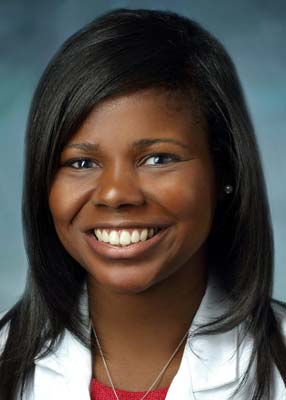 Assistant Dean for Graduate Biomedical Diversity and Inclusion
Assistant Dean for Graduate Biomedical Diversity and Inclusion
To discuss matters in regards to:- Graduate Student Diversity Efforts
- Serves as the Ex-Officio and Faculty Sponsor for the Student Diversity Council by providing support, feedback, and resources to the council.
-
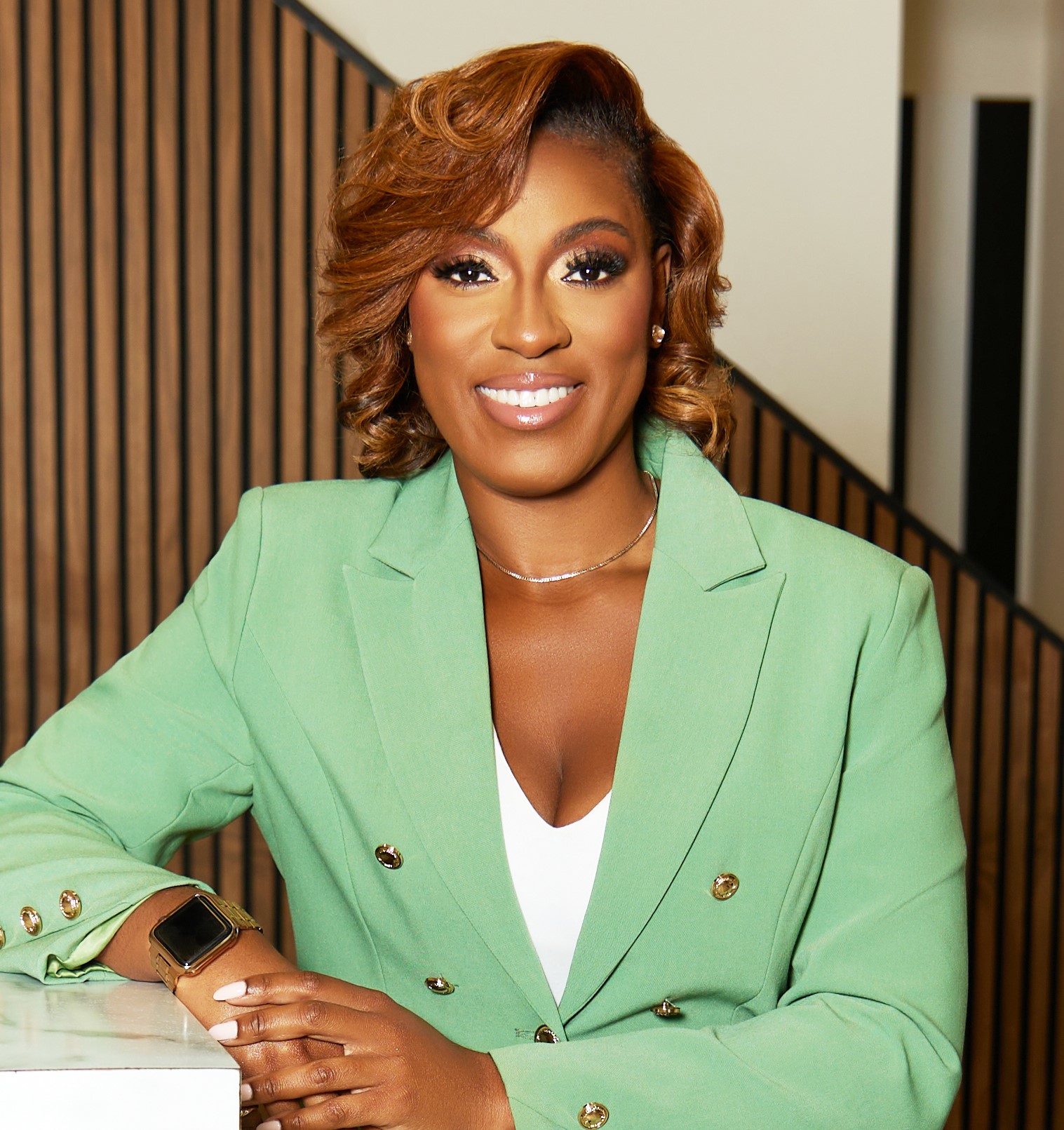 Program Director
Program Director
To discuss matters in regards to:- Oversees the development and implementation of SOM projects
- Outlines SOM training strategy and monitors training programs
- Provides high-level assistance and advice to the Vice President/Chief Diversity Officer and Sr. Associate Dean for Diversity and Inclusive Excellence to develop strategies, programs, initiatives, and assessment protocols
- Oversees SOM Diversity Councils (Staff, Student, Faculty, Housestaff, Post- Docs, Pipeline Programs)
-
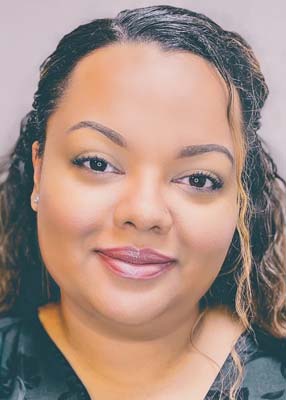 Program Coordinator
Program Coordinator
To discuss matters in regards to:- Serves as the team project manager and event coordinator (by developing project plans, timelines, status reports, keeping the team on track and abreast of project flow).
- Supports SOM Diversity Councils and JHM Employee Resource Groups.
- Manages SOM social media and newsletter content.
-
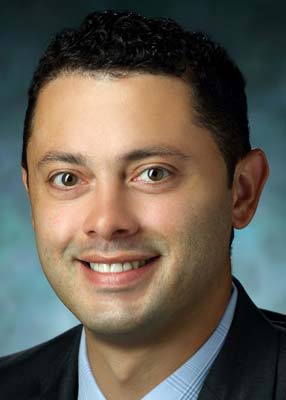 Program Director for Pathway Programs
Program Director for Pathway Programs
To discuss matters in regards to:- Advises the JH-SOM Program Director for Diversity, Inclusion, and Health Equity on solutions for identified needs and issues of pathway program leads
- Collaborates with the Assistant Dean for Student Affairs & Medical Student Diversity, Assistant Dean for Graduate Biomedical Education & Graduate Student Diversity, and JH-SOM Program Coordinator to lead the SOM Student Diversity Council
- Identifies D&I barriers that impact recruitment, retention and advancement, recruitment, training, and critical assignments.
- In collaboration with the JHM Office of Diversity, Inclusion, and Health Equity, implement the IDARE (inclusion, diversity, anti-racism, and equity) educational strategy, which includes unconscious bias, microaggressions, allyship, anti-oppression, and other topics as they may arise, for medical and graduate students.
If you have any questions or need additional guidance, please don't hesitate to email [email protected].

